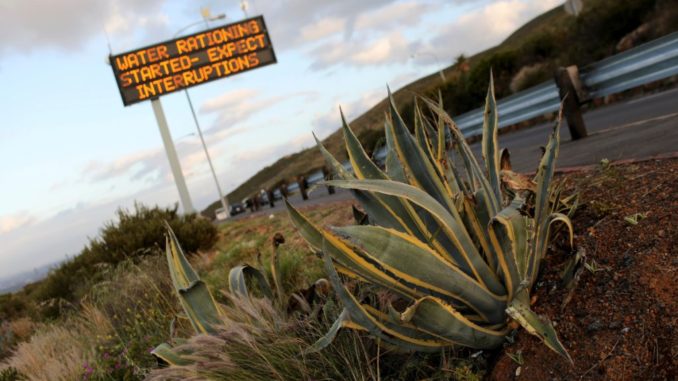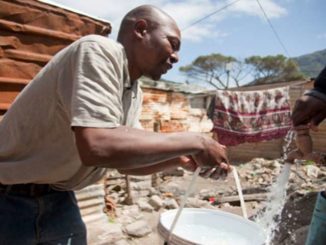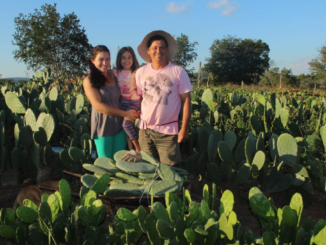
South African officials say ‘Day Zero’ will be April 21, when the city of 4 million is expected to run dry.
Updated January 20
BY ROBYN DIXONTRIBUNE NEWS SERVICE
JOHANNESBURG — Cape Town, South Africa’s second-largest city, is facing its worst drought in a century, with its water supply expected to run out April 21.
They’re calling it “Day Zero.” In this city of 4 million, people will have to line up in the streets at just 200 water stations. The police and army will enforce a limit of 6.6 gallons per person and adopt measures to control crowds. Some experts believe evacuations will be necessary.
If the city runs out of water, it will be the first major city in a developed country to do so.
But a number of details of the crisis plan remain unclear. How would one person carry 26 gallons of water for a family of four? How would the elderly and disabled cope? What about the fact that officials expect there will be insufficient water to flush the city’s toilets?
“A lot of the logistics are not known, and that’s worrying and it’s causing a lot of alarm. We just never get any answers, which tells us there is no plan,” said resident Brigetti Lim Banda, who started a Facebook page on the water crisis. “We are at the point where it’s impossible to avoid Day Zero.”
Last week, the Cape Town city government moved Day Zero a week forward to April 22, blaming citizens for using too much water. This week, it advanced ominously again, by one day.
After three years of drought, towns across eastern and southern Africa have faced troubles, and some already have had to import water. None, though, are as large as Cape Town.
The problem boils down to sharp population growth and a failure to plan alternative water sources to augment the reservoirs behind six dams, some of which are rapidly dwindling to arid sandy stretches. The dams have fallen to 15.2 percent capacity of usable water, compared with 77 percent in September 2015.
Here, residents are now rationed to 23 gallons a person each day. But only 39 percent of citizens are meeting the target. After February, they will be cut to 13 gallons.
“The average ordinary citizen is reaching the breaking point,” said Anthony Turton, a water expert at the Center for Environmental Management at the University of Free State. “You have people saying, ‘Enough,’ and ‘No further.’”
“Everyone has got buckets, and we’re using buckets because we have to recycle all the water we can,” said Lim Banda. “We have buckets in the shower, buckets in the kitchen, buckets in the laundry.
“I forgo my shower for three days until the fourth day, when I need to wash my hair, so that I can save my water for laundry and so forth.”
Swimming pools are empty. People with lush gardens are suspect. Householders capture recycled graywater to flush toilets.
Analysts say there is indeed a serious risk the city will run dry.
“I think it’s a very serious threat. Nobody saw how serious the crisis could be until recently,” said Magalie Bourblanc, public policy analyst at the Center for the Study of Governance Innovation at the University of Pretoria. “They need to prepare the population for that.”
Cape Town, capital of South Africa’s Western Cape province, faces a long-term water problem because of climate change and drought, much as has been seen in recent years in Australia, India and the western United States.
But the water crisis here has been worsened by government planning failures and buck passing between the national and city governments.
Families who surpass their water ration must agree to have a water restriction device installed on their pipes.
Source:https://www.pressherald.com/2018/01/20/water-rapidly-running-out-in-cape-town/
Visits: 172




Cape Town is now well-known for this lacking of fresh water.